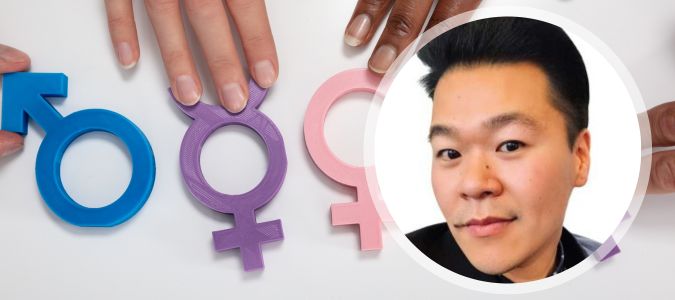
Under the National Institute of Health’s R25 grant mechanism, Sean Arayasirikul, PhD, associate professor in-residence of health, society, and behavior at UC Irvine Program in Public Health, has been awarded a training grant to develop short, online courses that advance gender and health justice understanding for a new generation of the public health workforce. Geared toward undergraduate students, Master of Public Health students, and community health workers, this training will provide individuals in different career stages the ability to understand the intersection of HIV prevention, gender, and health justice and employ skills to protect vulnerable communities.
Billions of people around the world face some degree of gender discrimination, physical, sexual, and psychological abuse and violence. Furthermore, multiple epidemics converge in the lived experiences of those at multiple intersecting minoritized social positions. People who identify as women experience gender-based violence, are vulnerable to HIV transmission, and face grave structural social inequities that contribute to poor health outcomes. In particular, minoritized women – BIPOC women, transgender (or trans) women, and BIPOC trans women (the intersectional interplay of minoritized sex, gender and race/ethnicity) – are at heightened vulnerability.
Gender and health justice are interconnected with broader social justice movements. By addressing gender-based disparities in health, we contribute to the larger goal of achieving social justice and equity for all individuals, regardless of gender identity or expression.”
– Sean Arayasirikul, PhD
Today’s contemporary social, legal, and cultural environment threatens the rights of women, especially minoritized women with a growing absence of protections for reproductive health, gender affirmative care, self- determination, and bodily autonomy.
“Educational opportunities like this R25 training program that can advance gender and health justice research and practice are critical to end these multiple intersectional epidemics,” said Arayasirikul who is also an associate director of the UC Global Health Institute’s Center for Gender and Health Justice. “Gender and health justice are interconnected with broader social justice movements. By addressing gender-based disparities in health, we contribute to the larger goal of achieving social justice and equity for all individuals, regardless of gender identity or expression.”
The project builds on the intellectual capital and infrastructure of the UC Center for Gender and Health Justice led by faculty at UCLA, UCSF, UCSB, and UCI.